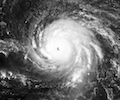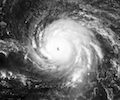

Global shipping markets have been roiled by major disruptions after Hurricane Ida made landfall along the US Gulf Coast on Aug. 29, as shipments ranging from LNG and naphtha to grains and gasoil are delayed and refineries shut down temporarily, market participants said Aug. 31.
Schedules for cargoes loading in LNG tankers, clean tankers and dry bulk carriers have been delayed and there is uncertainty over the revised schedules and eventual loadings because some of the berthing terminals have been heavily damaged, they said.
“There is an arbitrage opportunity open for Asian jet fuel movement to the US and Europe for loading early next month,” a clean oil tanker broker said.
At least eight LR2s have been recently contracted to load jet fuel on the North Asia-Europe routes in the first half of September, with some of them having options for delivery in Singapore and the US Atlantic Coast as well, the broker said. LR2s typically carry cargoes between 75,000 mt and 90,000 mt and not all ports can berth such ships.
Market participants point out that though not all of these shipments will end up in the US, but any delay in resumption of normal refinery operations in the US Gulf Coast will translate to a higher trans-Pacific and Atlantic shipping demand. Gasoline shipments from Europe to the US are also expected to support the MR tanker rates, they said.
“It all depends on how quickly the US refining operations resume,” another shipping source said. Roughly 75% of Louisiana’s refining capacity and nearly 95% of offshore US Gulf of Mexico oil production remained offline Aug. 30. Around 1.9 million b/d of refining capacity is shut at Louisiana due to the deadly hurricane, industry sources said.
“All [commodities] shipments in and out of the US Gulf are delayed,” a tanker broker in North Asia said. The region is a major importer of US naphtha and may look elsewhere for near-term sourcing.
A few weeks ago, Asian clean tankers’ rates on several key routes hit year-to-date highs and the natural calamity has come at a time when the gains had started to taper.
Since a few LNG loadings in the US have been postponed, more ships may be offered as relets, putting a downward pressure on the rates in the near term, an international LNG brokerage executive said.
Production at most US LNG terminals such as Cameron and Sabine Pass have continued as per normal despite the storm, but a few shipments will definitely be delayed, sources said.
According to dry bulk market sources, grain loadings at Louisiana’s key terminals have been badly disrupted. It has been widely reported that a Cargill-owned grain export elevator has suffered considerable damage.
Hurricane Ida made landfall on Aug. 29 and has already been downgraded to a tropical depression, but massive efforts are still underway to restore logistical normalcy for shipments of commodities.
Source: Platts